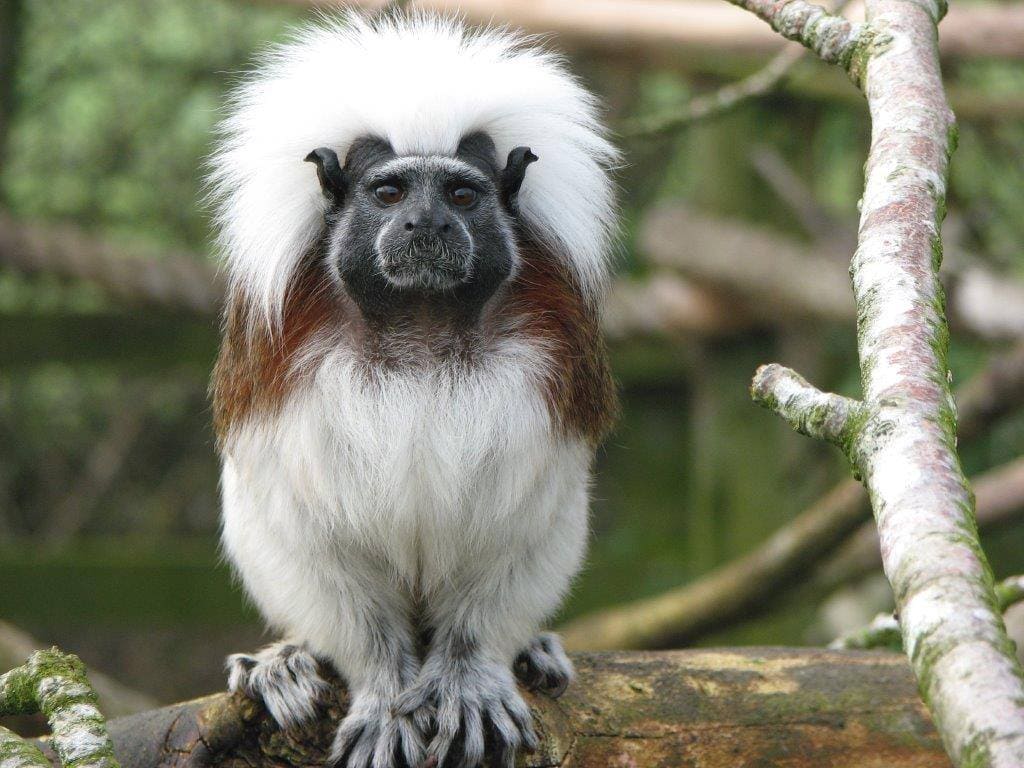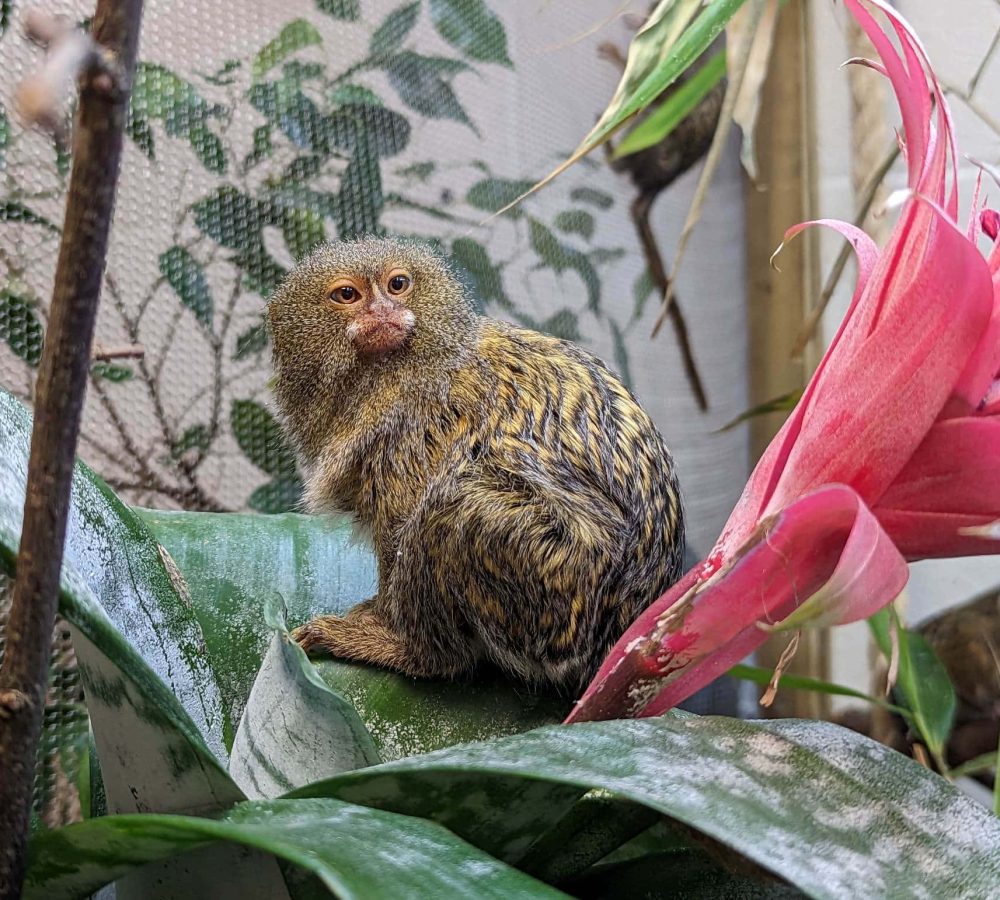
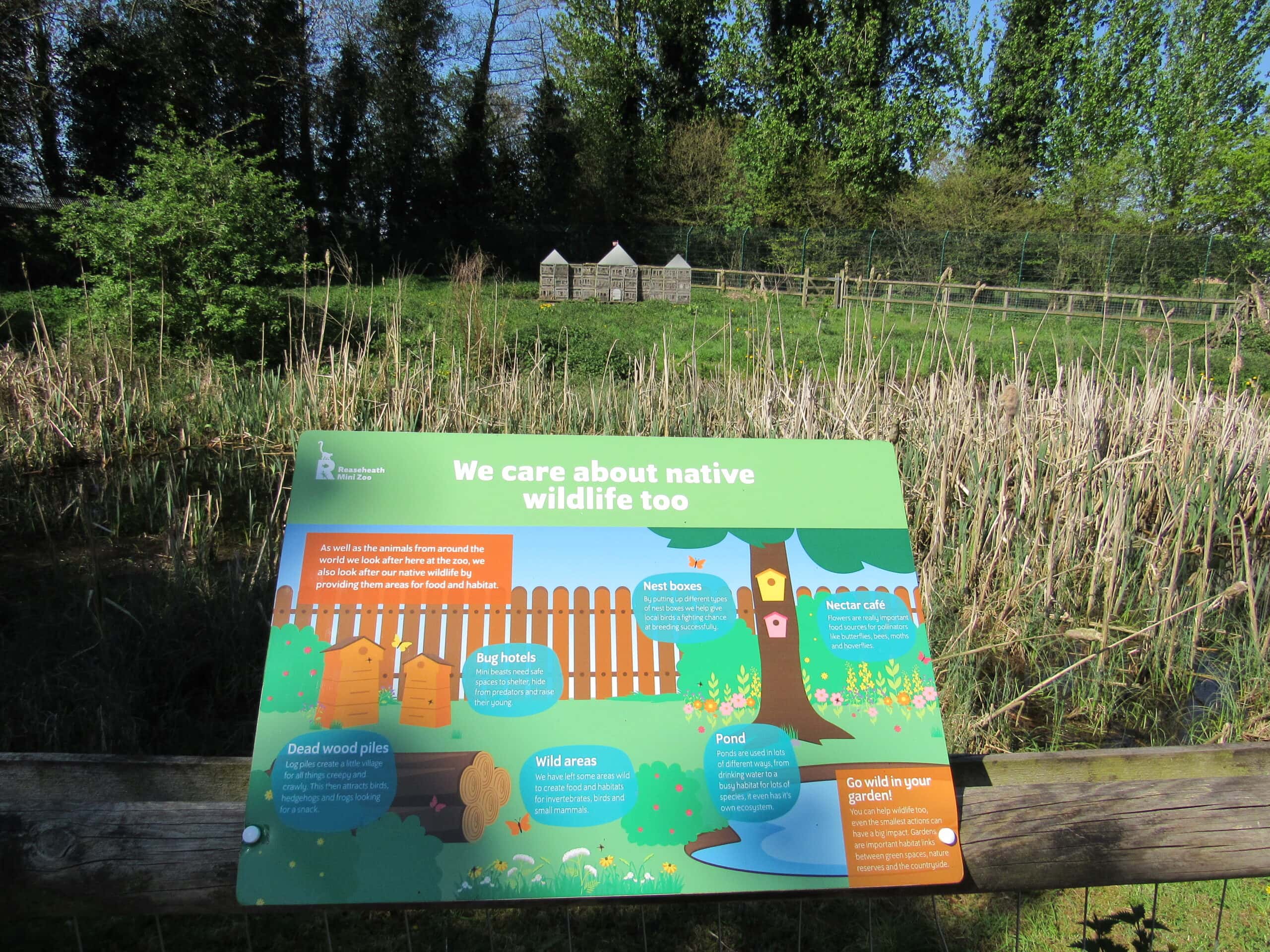
Working alongside our teaching staff, the zoo staff help to maintain a ‘Native Wildlife Area’ within the zoo grounds with the aim to improve biodiversity across the zoo and surrounding campus. Working alongside BIAZA to participate in campaigns such as Spotted on Site- utilising software such as iNaturalist to record wild species of both plants and animals on site, such findings can then be used in national research.
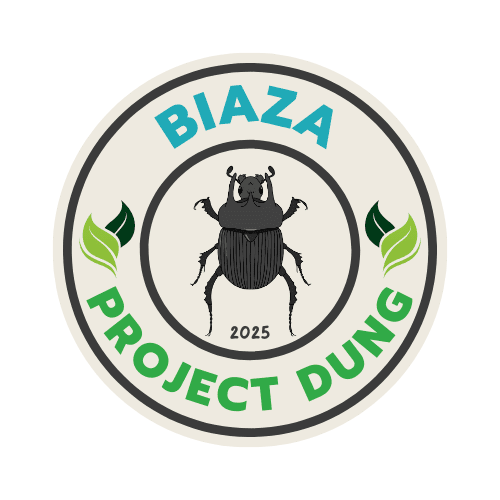
Our Head Keeper is a member of BIAZA’s Native Invertebrate Focus Group (NIFG) with a focus on native dung beetles. Reaseheath Mini Zoo has collaborated with BIAZA to launch the national campaign, ‘Project Dung Beetle Utilisation for Native Growth (DUNG)’. This campaign aims to educate both the staff and visitors at BIAZA collections to promote the conservation of native dung beetles within the UK. Out of the 150 species of dung beetles in the world, the UK is thought to have around 60 species.
British dung beetles rely on herbivore poo for their food, shelter, and larvae development. Zoos have almost unlimited access to herbivore poo for free- so BIAZA collections are now coming together to create habitats for dung beetles within the zoo grounds. Reaseheath’s dung beetle habitat can be found within our Native Wildlife Area.
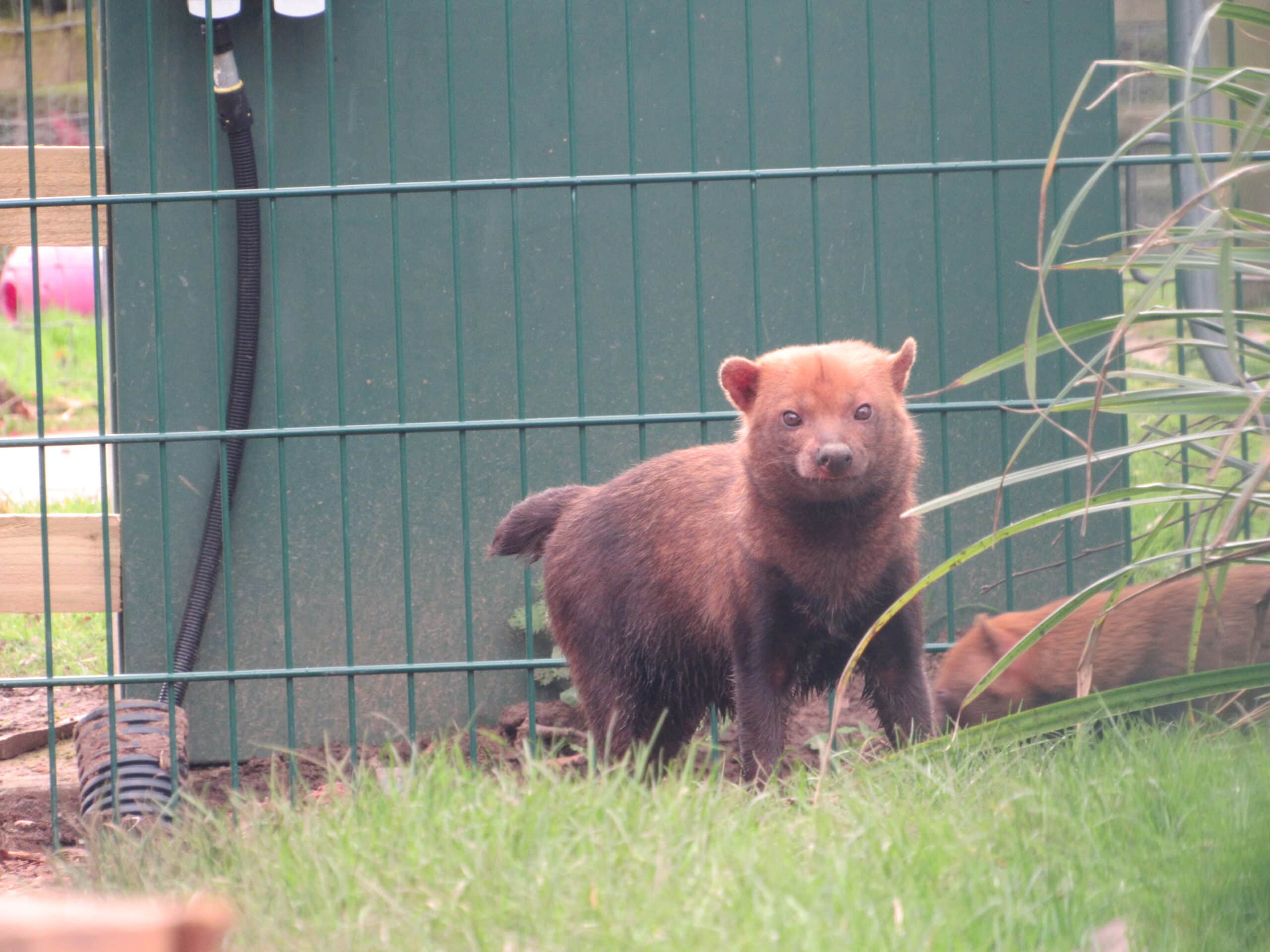
At Reaseheath Mini Zoo, some of our species are part of European breeding projects, called European Endangered Species Programmes (EEPs). These are run by the European Association for Zoos and Aquariums (EAZA). Such species within our zoo include the bush dogs and our pygmy marmosets. Currently the zoo holds all female groups. However, we take direction from the Studbook Keeper (who organises all of the individuals in the programme) and could be given a male one year to breed with our females. These discissions are based on multiple factors, such as gene pools.
“The aim of EEPs is to have and maintain healthy and thriving populations of healthy animals within EAZA and beyond.” – EAZA | EEP Pages
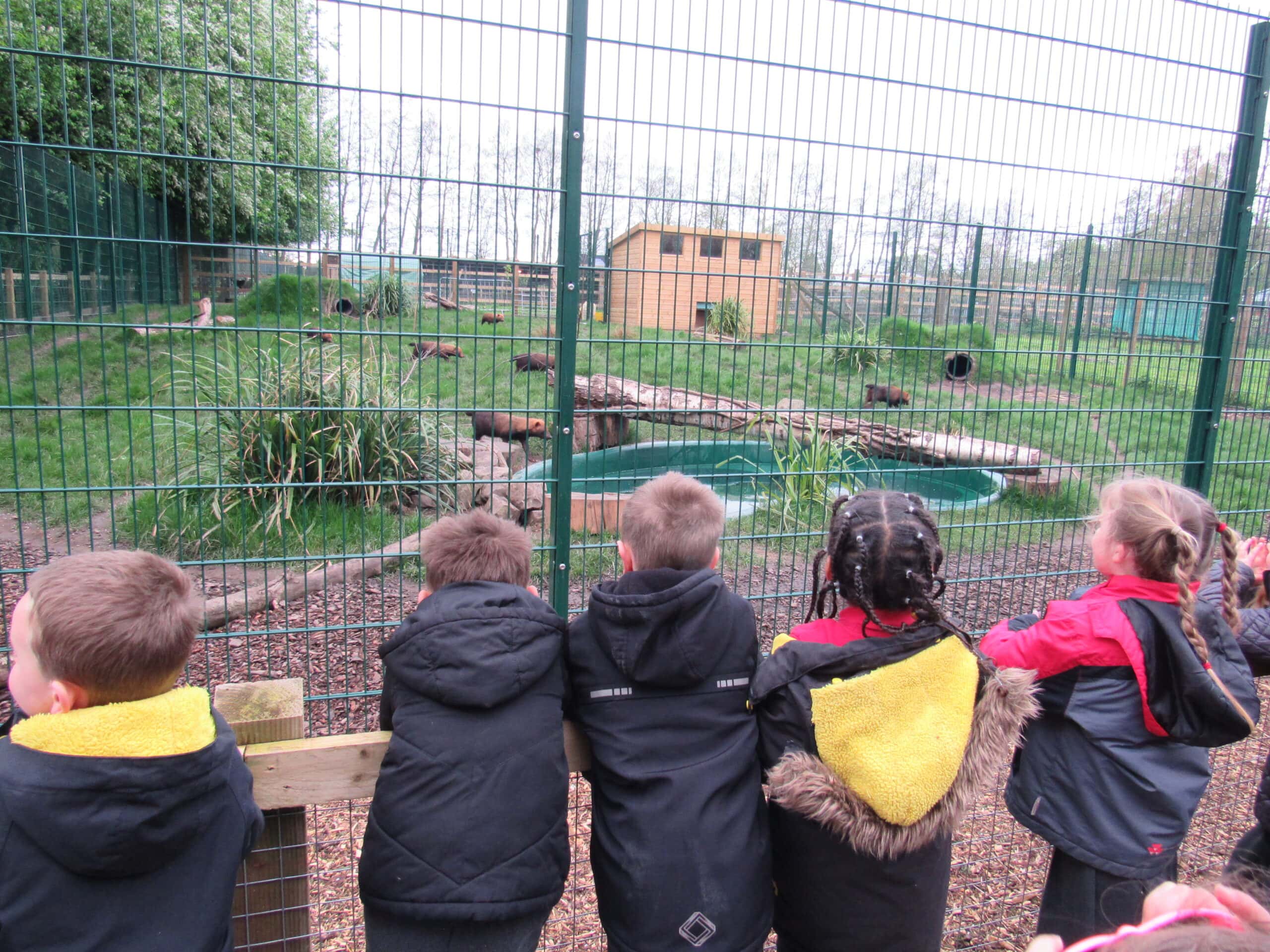
Here are Reaseheath Mini Zoo, conservation education is one of the most important strategies we can implement. Through our animal experiences, keeper talks, signage within the zoo, and in-house school visits we can reach thousands of people to educate them about the natural world around them, both close to home and further afield.
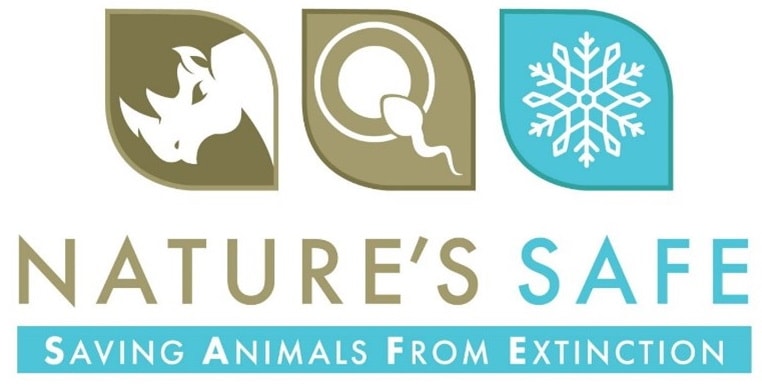
Nature’s SAFE (Saving Animals From Extinction) is one of Europe’s first biobanks dedicated to preserving cells from the world’s most endangered species for regeneration and research in the future. They cryopreserve cells in tissues such as reproductive organs and skin samples in freezing temperatures (-196’C) in the hope that in the future these viable tissues may be thought and used to further conserve thousands of species globally.
We have teamed up with Nature’s SAFE and contribute biological samples to the biobank from the species help at Reaseheath Mini Zoo to help current research and protect wild species in the future. Recently, Reaseheath has been chosen for a sample sent in 2024 to be used in a 2025 study which aims to aid endangered species’ conservation in the wild.
